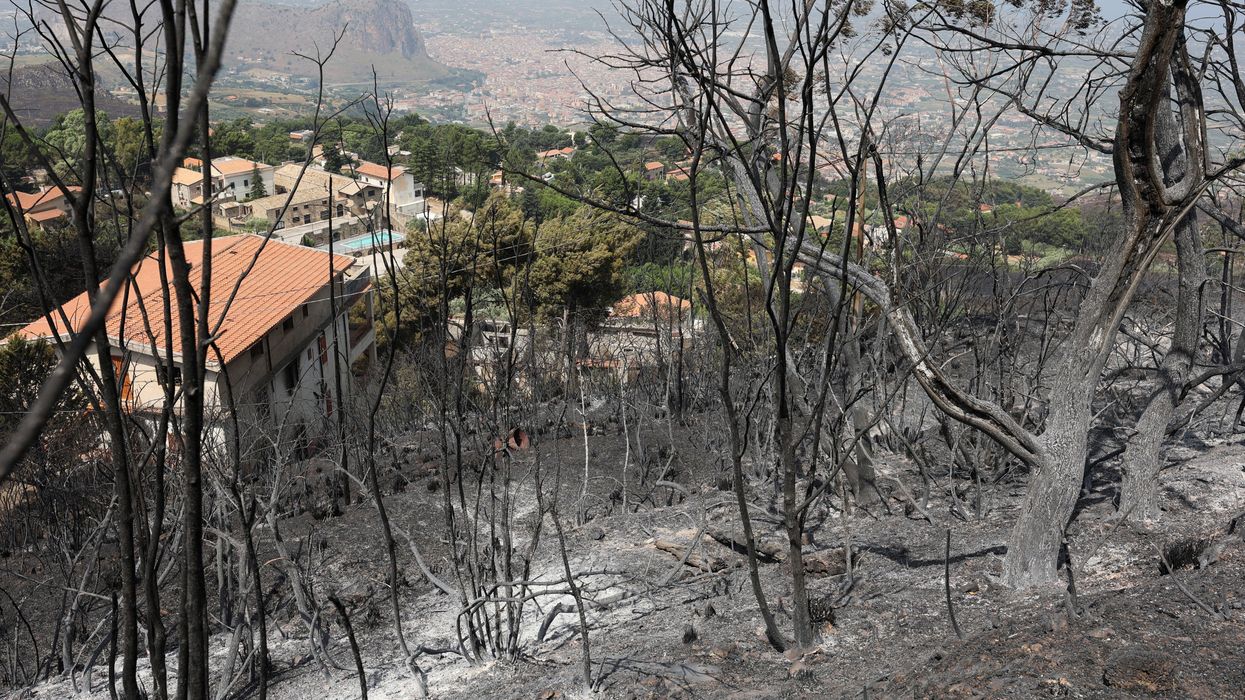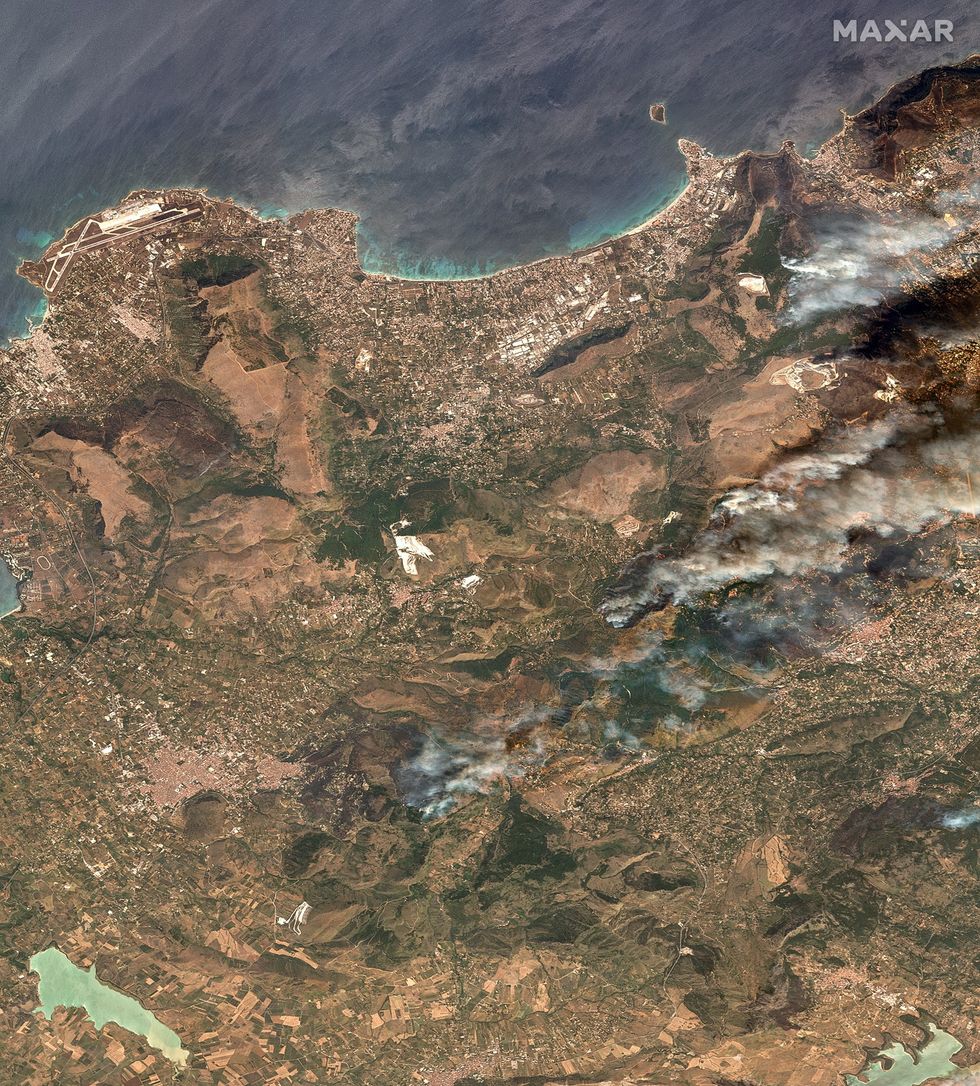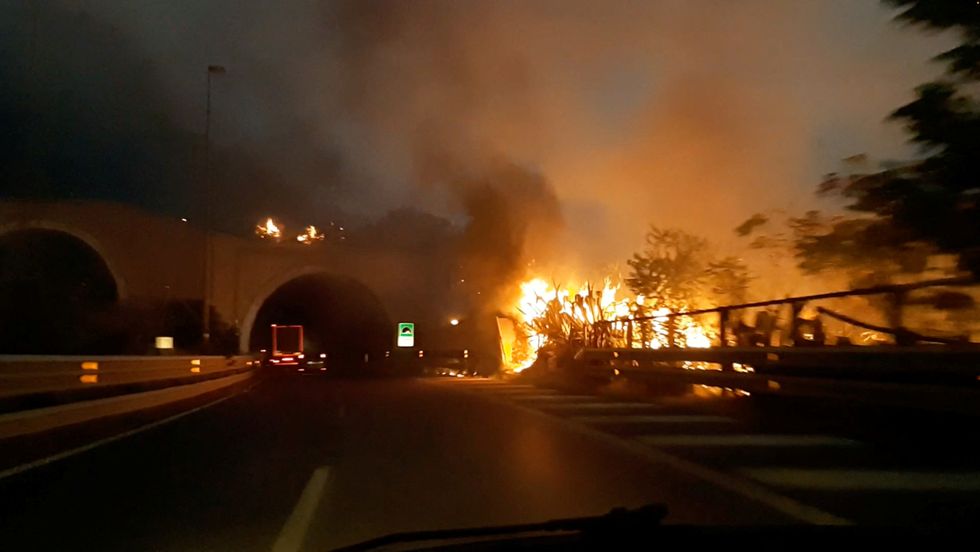British tourists to be offered extreme heat insurance in wake of European wildfires

Devastating wildfires have caused many tourists to rethink their holiday destinations
|Reuters

Insurance companies will offer holiday-makers pay-outs if their holidays are too hot, similar to pre-existing extreme rainfall policies
Don't Miss
Most Read
Tourists will be offered holiday insurance specific for extreme heat following recent heatwaves change travel habits.
Sweltering heats engulfing the Mediterranean are prompting many to rethink their holiday destinations.
However, an insurance company is planning to offer a plan that will cater to over-heating UK travellers.
A US firm, Sensible Weather, may compensate travellers for the full of their trips if temperatures reach 40C.

The Mediterranean has been ravaged by sweltering heats, with mercury reaching 47C in Sicily.
|Reuters
Please write at least 2 paragraphs
The firm already offers policies against extreme rainfall to their UK customers and is currently writing an equivalent for extreme heat.
Their rainfall policy features in the travel insurance schemes offered by insurance companies, such as TUI.
Extreme temperatures across the Mediterranean have disrupted plans for millions of holidaymakers.
From wildfires to Greece across to Portugal, and the mercury reaching 47C in Sicily, the effects of climate change are putting many travellers off their trips.
Nick Cavanaugh, the Sensible Weather chief executive and a former climate scientist, told iNews that the company was in the process of deciding what ranges of temperatures and locations could trigger an insurance pay-out.

Many holiday-makers are rethinking their choice of destinations in light of extreme temperatures.
|Reuters
“We will soon be offering trip protection against extreme temperatures,” he told the newspaper.
“We’ve found that travellers have different expectations for what’s too hot, depending on where and when they are going somewhere.
“As we roll the product out, we will modify our offering until we find the sweet spot for a given customer, location and time of year,” he said.
Rainfall policy pay-outs has become a successful add-on for many insurance providers.
Weather derivatives, a financial instrument which allows companies to hedge against the risk of weather-related losses, has evolved into a multi-billion-dollar industry within the last decade.
The Sensible Weather rain policy costs approximately 10 per cent of the total holiday amount, and the policy pays out if there are two hours of rainfall between 8am and 8pm.
They use vast amounts of historic and current weather data to calculate the risk of rain.
However, it is only now, due to the recent extreme heatwave, that companies have thought about insuring against holiday weather being too sunny.
TUI has suggested they would consider applying the sunny weather “bolt-on” to some policies.
A spokesperson said: “We are always looking for ways to expand our products and features to deliver the best service for our customer’s needs”.
Mr Cavanaugh has suggested that there could be a tiered payout system, with a percentage being repaid to customers if they experience a certain amount of exceptionally high heat whilst they are on their holiday.
He said that if mercury hits 35C, it could lead to a 50 per cent refund, and 40C would result in a full refund for customers.
Tourism chiefs across Europe have insisted this week that the heatwave has not had a negative effect on the number of tourists visiting this summer.
However, a European Union-funded study from earlier this month, suggested otherwise.
They found that there had been a 10 per cent drop in the numbers of people saying they intend to travel to the Mediterranean.
The research also showed that 7.6 per cent of people now have climate change and extreme weather worries when they are planning their next trip abroad.
This announcement comes as Europe recovers from an extreme heatwave that has seen scorching temperatures and blazing wildfires.










